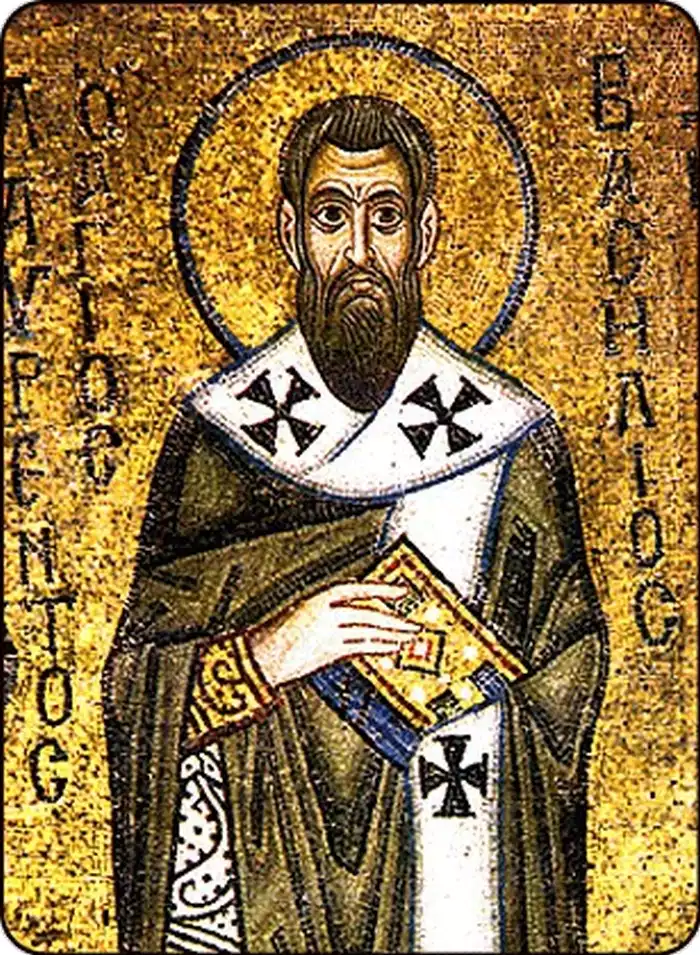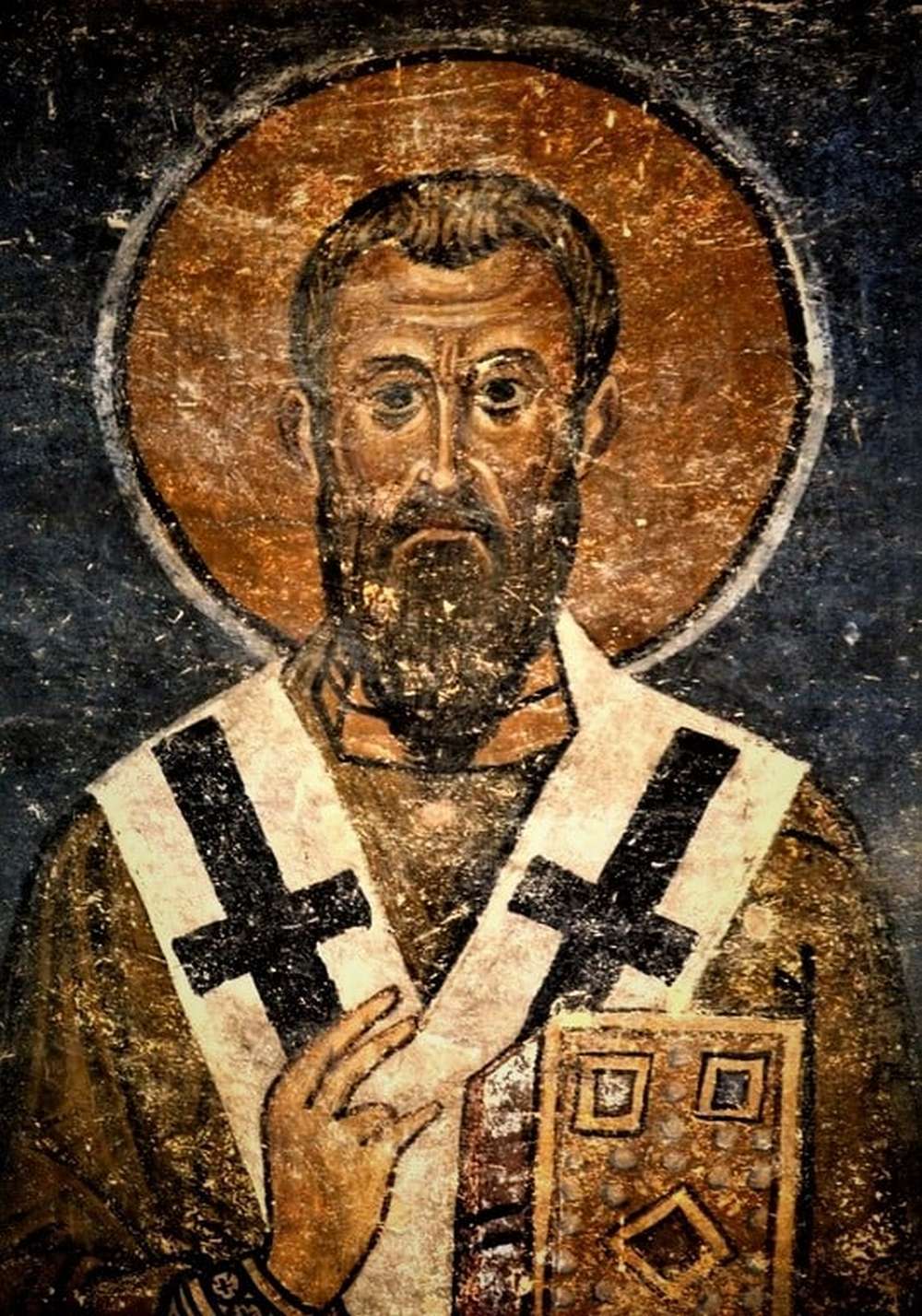
Saint Basil the Great (330-379 AD), renowned for his influential role in the development of early Christian monasticism and theology, remains a pivotal figure in the history of the Christian Church. Born into a family deeply rooted in Christian faith, Basil’s life and works spanned a period of significant religious and cultural transformation. His death in 379 marked the end of an era that saw the solidification of Christian doctrine and practice, profoundly shaping the future of Christianity.
Early Life and Education
Saint Basil the Great’s journey began in Caesarea, Cappadocia, where he was born around 330 AD. His early life set the stage for his later achievements. Raised in a family known for its piety and learning, Basil received a comprehensive education that laid the foundation for his theological insights. His formative years were marked by extensive studies in Hellenistic literature, philosophy, and rhetoric, first in his native Caesarea and later in Constantinople and Athens.
During his time in Athens, Basil forged important friendships, notably with Gregory Nazianzen, who would also become a significant religious figure. These early experiences and connections profoundly influenced his theological and philosophical outlook, shaping his future contributions to Christian thought.
Transitioning from academia to a more spiritual focus, Basil began to gravitate towards the ascetic life, drawing inspiration from his sister, Macrina, and her commitment to religious life. This shift marked a pivotal point in Basil’s journey, leading him to delve deeper into Christian spirituality and monasticism.
Monastic Contributions and Theological Impact
Saint Basil the Great’s return to Caesarea in 357 was a turning point, marking the beginning of his significant contributions to Christian monasticism and theology. Embracing a monastic lifestyle, Basil established one of the earliest monasteries in Asia Minor. His approach to monastic life was revolutionary, combining communal living with individual asceticism. Basil’s rules for monastic life, known as the Basilian Rule, became a cornerstone for Eastern Orthodox monasticism, emphasizing community life, poverty, prayer, and manual labor.
Basil’s theological contributions were equally significant. He played a crucial role in the development of the Nicene Creed, defending the divinity of the Holy Spirit against Arianism, a prevailing heresy of the time. His theological works, including his treatise “On the Holy Spirit” and numerous homilies and letters, provided profound insights into Christian doctrine and ethics.
Moreover, Basil’s impact extended beyond monastic and theological realms. As a bishop of Caesarea, he was known for his care for the poor and underprivileged, establishing a complex in Caesarea, later called the Basiliad, which served as a hospital, hospice, and poorhouse. This demonstrated his commitment to the practical application of Christian values in societal welfare.
Saint Basil the Great’s legacy endures through his influence on Christian liturgy, particularly in the Eastern Orthodox Church, where his liturgical work, the Divine Liturgy of Saint Basil, is celebrated on specific occasions. His contributions to monasticism, theology, and social welfare cement his status as a pivotal figure in early Christianity, whose work and teachings continue to resonate within the Christian tradition.
Ecclesiastical Leadership and Influence
In 370 AD, Saint Basil the Great was ordained as the Bishop of Caesarea, marking a new phase in his career where he blended his monastic ideals with ecclesiastical duties. His tenure as bishop was characterized by vigorous pastoral care, doctrinal teaching, and defense of the Nicene faith against Arianism. Basil’s episcopal leadership was notable for his staunch stand against imperial pressure, particularly in the Arian controversy, demonstrating his commitment to doctrinal purity.
Basil’s correspondence with other contemporary church leaders, such as Athanasius of Alexandria, further highlights his role in shaping the early Church’s theological and ecclesiastical landscape. His efforts in fostering unity among the Nicene Christians were pivotal in the consolidation of the orthodox stance against Arian and other heretical teachings.
Literary Contributions and Enduring Legacy
Saint Basil the Great’s literary legacy is as impactful as his practical endeavors. His extensive writings, ranging from theological treatises to pastoral letters, reflect his deep understanding and interpretation of Christian doctrine and his skill in addressing complex theological issues. His works, such as the ‘Hexaemeron’ – a series of homilies on the six days of Creation – showcase his ability to harmonize the Christian faith with contemporary scientific knowledge.
Basil’s letters offer invaluable insights into the religious, social, and political context of his time, making them crucial for understanding the early Christian Church’s history. His eloquence and clarity in expounding Christian doctrine have made his writings a lasting resource for theologians and scholars.
Saint Basil the Great passed away on January 1, 379. His death was mourned across the Christian world, but his influence persisted, firmly establishing him as a Father of the Church. His teachings, particularly on monasticism, ecclesiastical life, and Christian doctrine, continue to inspire and guide Christians worldwide. Saint Basil’s integration of intellectual rigor with deep spirituality sets a benchmark for Christian leadership and scholarship, making his life and works a perennial source of inspiration.
Feast Day: January 1
Patron Saint of: hospital administrators, reformers, monks, and educators
References
- Britannica, “Saint Basil the Great,” accessed December 14, 2023.
- Ehrman, Bart D. “The Orthodox Corruption of Scripture.” Oxford University Press, 2011.
- Kelly, J.N.D. “Early Christian Doctrines.” HarperCollins, 1978.
- Rusch, William C. “The Trinitarian Controversy.” Fortress Press, 1980.

